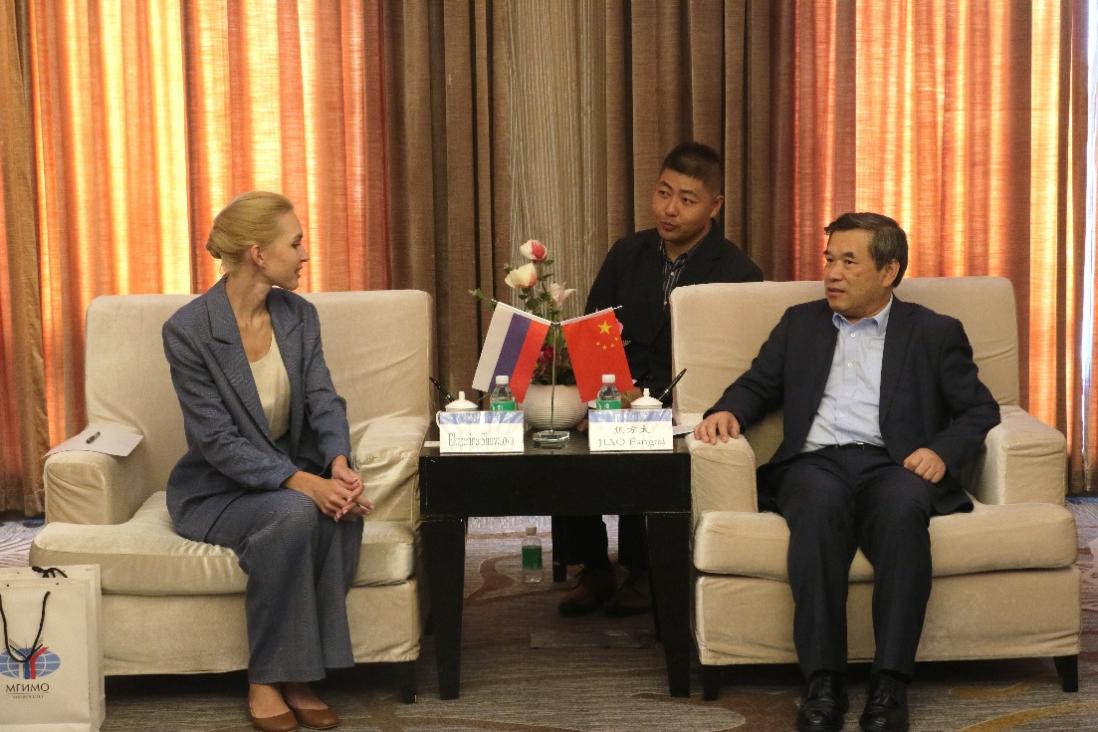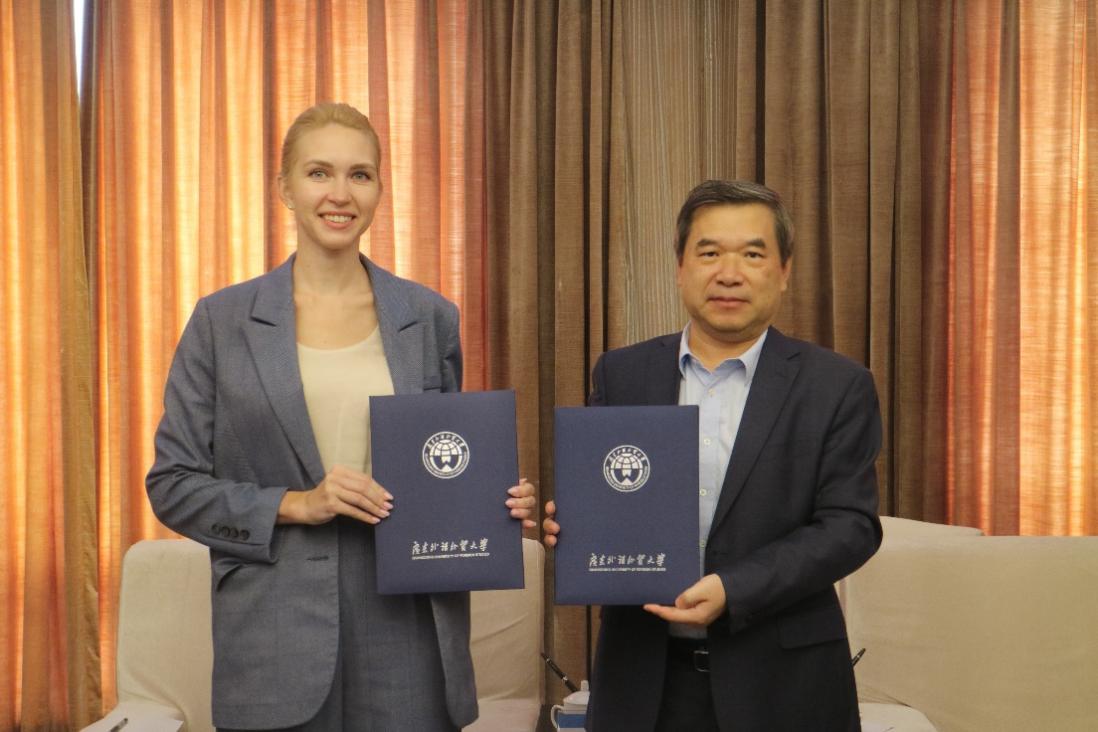On the morning of October 23, Ekaterina Shauvalova, Executive Vice President of the Moscow State Institute of International Relations, with her delegation, visited GDUFS. Jiao Fangtai, Vice President of GDUFS, met with the guests on the Baiyunshan Campus. The two sides exchanged views on subject construction, talent training, and strengthening school cooperation.

Ekaterina Shauvalova, Executive Vice President of the Moscow State Institute of International Relations meets Jiao Fangtai
Jiao Fangtai welcomed the visit of Ekaterina Shauvalova and her delegation and introduced the operation features of GDUFS and the construction and development of the Russian major. Jiao Fangtai pointed out that GDUFS is a high-level university with distinctive international characteristics and a wealth of foreign languages, among which the Russian major is a key major and one of the earliest majors that launched international exchange programs with foreign universities. At present, GDUFS has a “Russian Language Center” and a “Russian Research Center”, and has established cooperative relationships with many well-known Russian universities and institutions, among which a Confucius Institute has been established in cooperation with Ural Federal University. Jiao pointed out that this was the first collaboration between GDUFS and the Moscow State Institute of International Relations and hoped that the two schools could continue to work together in the future to strengthen cooperation and exchanges and contribute to the development of education in China and Russia.
Ekaterina Shauvalova expressed her gratitude to GDUFS for the welcome and introduced the overall situation and development of the Moscow State Institute of International Relations. She said that the Moscow State Institute of International Relations is a professional school that specializes in cultivating talents in international relations and enjoys a high reputation in Russia. Moscow State Institute of International Relations attaches great importance to the cultivation of Chinese language talents and regional and country research and hopes to continue to promote exchanges with Chinese universities in the future. She looks forward to continuing to strengthen exchanges with GDUFS and conducting friendly cooperation through online course sharing, teacher-student exchanges, scientific research cooperation, and joint training programs.
Subsequently, Jiao Fangtai and Ekaterina Shauvalova exchanged cooperation agreements.

Exchanging cooperation agreements
Related directors from the Office of International Exchange and Cooperation, and Faculty of European Languages and Cultures attended this meeting.

